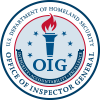We determined DHS encountered obstacles to screen, vet, and inspect all Afghan evacuees arriving as part of OAR/OAW. Specifically, U.S. Customs and Border Protection (CBP) did not always have critical data to properly screen, vet, or inspect Afghan evacuees. We determined some information used to vet evacuees through U.S. Government databases, such as name, date of birth, identification number, and travel document data, was inaccurate, incomplete, or missing. We also determined CBP admitted or paroled evacuees who were not fully vetted into the United States. We attribute DHS’ challenges to not having: (1) a list of Afghan evacuees without sufficient identification documents; (2) a contingency plan to support similar emergency situations; and (3) standardized policies. As a result, DHS may have admitted or paroled individuals into the United States who pose a risk to national security and the safety of local communities. We made two recommendations to improve the Department’s screening and vetting of current Afghan evacuees and coordination and planning efforts for future similar emergency situations. The Department did not concur with these recommendations.
Open Recommendations
| Recommendation Number | Significant Recommendation | Recommended Questioned Costs | Recommended Funds for Better Use | Additional Details | |
|---|---|---|---|---|---|
| 2 | No | $0 | $0 | ||
| We recommend the Secretary of Homeland Security develop a comprehensive contingency plan to support similar emergency situations in the future and account for, screen, vet, and inspect all individuals during unprecedented events when limited biographic data is available. Specifically: | |||||


